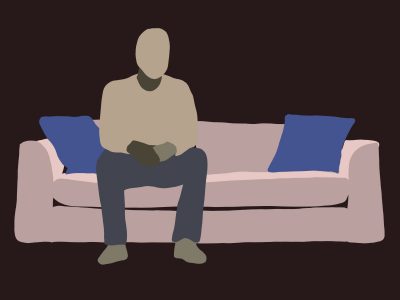Over the summer, my three years of dorm life finally came to an end. Finally, I signed a lease with a friend and moved into my first ever apartment for my last year of college. It was an exciting beginning to a new chapter in my life. After all, I always knew eventually I would have to move out of my family home for the last time to continue adulthood on my own.
My new Allston apartment was the beginning of that journey. It marked my first step towards achieving independence, and it meant I avoided the archetype of the post-college, do-nothing loser living in their mom’s basement. I’d never have to live with my parents again, right?

According to Pew Research Center, more than half of young adults were living with one or more parents in July 2020. Considering those of us currently marinating in the comfort-zone of academia are graduating into a world recovering from economic collapse, as the job market continues to be competitive and the wealth gap continues to increase, the luxury of independence is becoming harder and harder to achieve.
The daunting reality is this: many of us graduating in the next few years may have to move back home.
Despite this increasingly becoming the reality for millennials and zoomers, the stigma surrounding moving back home is still real. Anecdotally, I can say many people in my circle are trying to avoid having to live with their parents at all costs — myself included. So, it’s important to ask ourselves why there is such an emphasis on home-ownership.
Part of what makes living far from home so appealing to young Americans is the cultural emphasis on financial independence. The Joint Center for Housing Studies at Harvard University theorized that wealth creation, residential stability and a sense of control are three major factors that contribute to the desire for home-ownership. These traits are shared with the mythologized “American Dream” that promises prosperity in exchange for working hard.
Which is to say, for those who’ve internalized that narrative — that working hard means accumulating wealth — the contrapositive must also be true: if you lack wealth it means you haven’t worked hard enough to earn it. So, when we see people with college degrees houseless, living at home with their parents, we assume they must be lazy and irresponsible.
It is easy to fantasize that I will be financially independent after I graduate by overworking myself. But when economic collapses like recessions occur more and more frequently, and the cost of living increases as wages remain stagnant, that becomes harder to justify.

Although home-ownership is perceived to be a sign of upward mobility, the truth is there are only so many seats at the top. Many Americans can’t afford the luxury of home-ownership, and many of us graduating in the next couple of years may find ourselves in the same boat. When we internalize that how much wealth we accumulate correlates to how hard we work, we’re reinforcing a classist ideology that hurts not just others but ourselves.
If I’m going to cope with the fact that my path towards success may not follow American tradition, I may as well do so in my childhood bedroom.



















































































































John Doe • Sep 24, 2021 at 7:00 pm
No mention of trying to get a little bit of privacy and intimacy with a potential partner?… Also not everyone comes from a family who can actually afford taking us back…